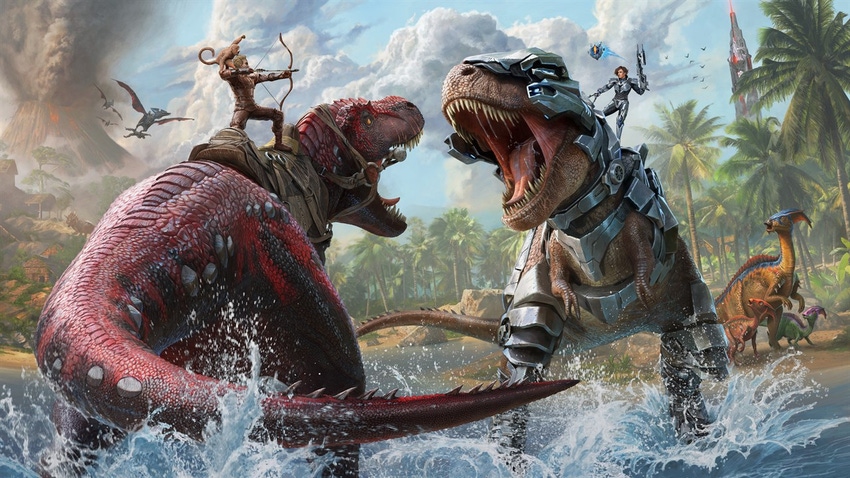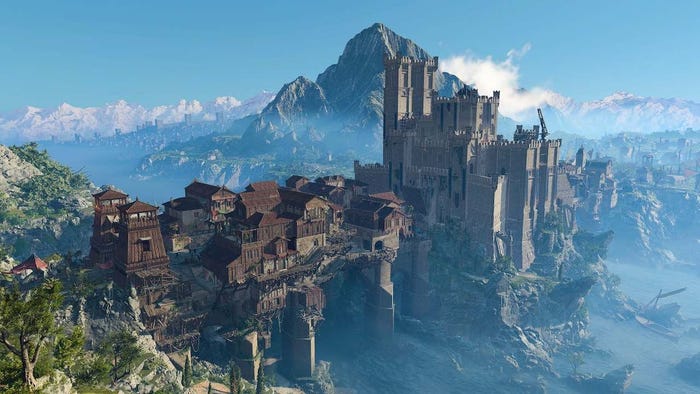To Mod or Not to Mod: Why The Future of Gaming is User Generated
It's time for the game industry to fully embrace this new era, recognizing that it not only leads to better content for players but also fosters deeper engagement for game studios.

Sean van Zyl, known as Garuga123, has always loved dinosaurs. From the time he could pronounce brachiosaurus to now when he furnishes his room with a stylish Jurassic Park pillow. They’ve always been a pillar in his life – so much so that he wanted to study to be a biologist or paleontologist when he was in school.
However, he never ended up pursuing those career paths because he found something else that was equally as engaging – Zbrush. A Photoshop teacher in high school let him submit 3D models instead of his usual assignments. It wasn’t long before it became one of his favorite hobbies, eventually leading him to become the established modder he is today.
“Modding lets me mix my love for both dinosaurs and video games,” Garuga said. “I don’t work on these mods full time, but that’s the goal if I can make it happen.”
While modding is still something he does on the side, it’s far from a hobby for a huge number of modders. It’s a profession and a primary source of income. In 2023, Roblox, Fortnite, and Overwolf combined paid over $1 billion to creators. Overwolf — which includes our platform CurseForge that Garuga now uses to distribute and monetize most of his projects – alone paid out over $201 million to creators in 2023.
Mods aren’t a passion-run, small part of the games industry anymore, they are one of the main attractions and will only continue to grow. Take ARK: Survival Ascended. That wild dinosaur survival adventure launched less than three months ago, and there are already over 1,000 mods in circulation and 60 million downloads.
Modders have always been a staple in the game industry. They’ve constantly supported the communities they love by finding ways to improve the games they spend so much time in — providing an untethered lifecycle for major game studios that is keeping gamers consistently coming back for more. They are an essential part of the game development process.
“When I started out I came to the conclusion that, especially with quality of life features, I had a great eye for what people needed,” said longtime modder Arco Dielhof, who goes by his in-game name Tex. “I was very quickly able to determine problem points as someone that's also been a beta tester for several years at a number of studios.”
Dielhof has made a living for himself by finding ways to improve games that players love. He’s built in-game maps that guide players to items and treasures in Diablo IV, Baldur’s Gate 3, and other major games from 2023. He actively seeks out ways he can improve the experiences of players in small but significant ways.
While modders have been that staple, they’ve rarely been compensated for their work. This is fine for those modders who simply want to give back to a gaming community that they love and support, but offering a path to celebrate and reward modders for their contributions to the industry is critical.
“I don’t have to worry about making ends meet with modding platforms, like CurseForge,” Dielhof said. “At one point I was making too much money as an individual so I had to start my own company. Now I even pay several freelancers.”

The majority of modders take on this type of work on a part-time basis, but many of them would make the jump if it was feasible. That sort of jump is becoming more possible with every day the game industry – and the modding scene – grows.
Sean Philip van Zyl, for example, has been working full-time as an adjunct professor of digital media at a university for the past five years, but his passion lies in creating experiences for gamers to enjoy. He’s been growing his community, which currently sits at over 10,000 Discord members, and getting extra funding through Patreon. He’s been able to take on fewer classes with the money he brings in from designing dinosaurs.
“The type of mods I work on take months of work to get right,” he said. “There are some mods that can be done in a day, but others that can totally change how a game is experienced. Those ones – especially if moderated – are worth a price tag.”
Modding communities have traditionally thrived on the passion and spare time of dedicated individuals. But now the games industry is at a new UGC inflection point, and it’s even more apparent that the strong growth of gaming will be largely driven by communities of creators. It's time for the game industry to fully embrace this new era, recognizing that it not only leads to better content for players but also fosters deeper engagement for game studios.
About the Author(s)
You May Also Like









